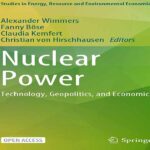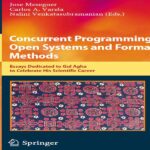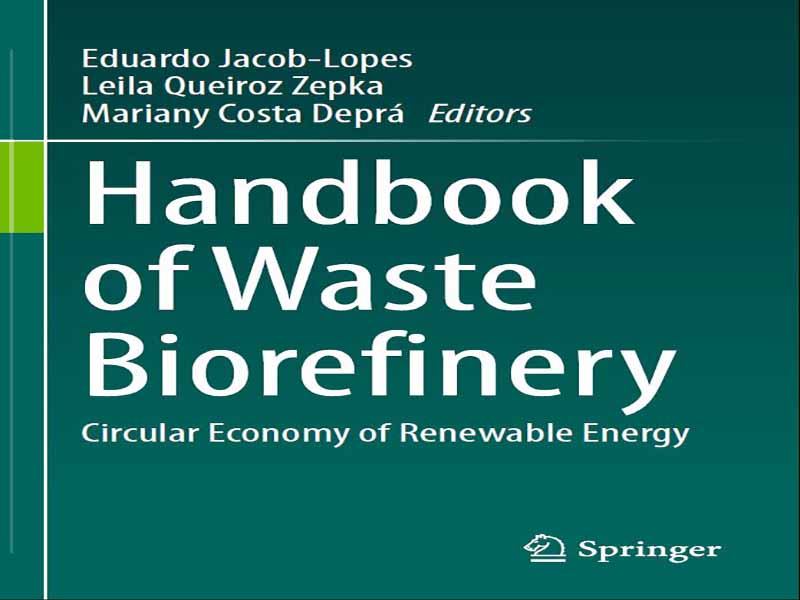- عنوان کتاب: Handbook of Waste Biorefinery
- نویسنده: EduardoJacob-Lopes
- حوزه: زباله
- سال انتشار: 2022
- تعداد صفحه: 1001
- زبان اصلی: انگلیسی
- نوع فایل: pdf
- حجم فایل: 24.5 مگابایت
ما در دنیای مادی زندگی می کنیم، جایی که وعده های آب و هوایی هنوز محقق نشده است. روشی که ما مواد خام را کشف می کنیم و ضایعات آنها را مدیریت می کنیم برای متنوع ترین جنبه های آینده زیست محیطی و اقتصادی ما اساسی است. بنابراین، اگر میخواهیم پایداری را بپذیریم – اثرات زیستمحیطی را به حداقل برسانیم و از نظر اقتصادی رقابتی باشیم – تغییرات پارادایم در مورد دفع زبالهها باید همهجانبه و در حال ظهور باشد. یعنی اعمال طبق معمول نمی توانند ادامه پیدا کنند. باید فوراً شروع کنیم. در واقع در گذشته ایجاد ضایعات در ارتباط با تولید و مصرف به عنوان یک شر ضروری پذیرفته شده بود. امروزه فراتر از تصور زباله به عنوان یک مشکل به زباله به عنوان یک منبع چالش اصلی جهانی است. برای این منظور، ضروری است که قصار پیشبینیشده را به کار ببریم – «در طبیعت هیچ چیز ایجاد نمیشود، هیچ چیز از دست نمیرود، همه چیز تغییر میکند» و اینکه ما باقیمانده جهل خود را به جایگزینهای اقتصادی و زیستمحیطی پایدار تبدیل کنیم. با این حال، این فرض تا کنون به طرز تاسف باری مورد بررسی قرار نگرفته است. به این ترتیب، اقدامات جدید باید شبکه بسیار گستردهتری نسبت به رویکردهای سنتی برای پیشگیری از زباله، استفاده مجدد و بازیافت ایجاد کند. با وجود این، آنها همچنین باید نشان دهنده تغییر در نحوه تفکر ما در مورد پایداری، از دیدگاه انعطاف پذیر و رقابتی باشند. در این مسیر پیش رو، مدلهای صنعتی تحت رویکردهای پالایشگاه زیستی بهعنوان راههای فناوری امیدوارکننده پیشنهاد شدهاند و اکنون در اتخاذ استراتژیهایی برای مهار زیست توده باقیمانده فعال میشوند. از طریق مسیرهای تشدیدکننده یکپارچه و پردازش است که پالایشگاه های زیستی زباله محصولات مختلفی مانند غذا، انرژی زیستی، بیوشیمیایی و مواد زیستی تولید می کنند. با این حال، با سرمایه گذاری قابل توجهی که در چنین تحولی انجام می شود، غیرقابل انکار است که این انتقال باید مبتنی بر دانش باشد. بنابراین، دفترچه راهنما که در اختیار دارید، یک بار به موقع بر گردآوری و انتقال اطلاعات فنی-علمی دقیق در مورد مبانی کلیدی، ذخایر خوراک، فناوریهای پردازش مرسوم و پیشرفته، و همچنین بحثهای خطمشی و مسائل مرتبط با مالکیت معنوی و پالایشگاه زیستی زباله متمرکز است. علاوه بر این، چشماندازها، درسها و تجربیات عملی مدیریت پایدار پسماند از طریق شاخصهای اجتماعی، زیستمحیطی و اقتصادی نیز گنجانده شد تا راهی برای صرفهجویی در منابع، کاهش احتمال شکستهای آینده، تسریع روند تحکیم و در نتیجه توسعه اقتصادهای دایرهای پایدار در جهان فراهم شود.
We live in a material world, where climate promises have not yet been delivered. The way we explore raw materials and manage their waste is fundamental to the most diverse aspects of our environmental and economic future. Therefore, if we are to embrace sustainability—minimize environmental impacts and be economically competitive—paradigm changes around waste disposal must be ubiquitous and emerging. That is, actions, as usual, cannot continue. We should begin forthwith. In fact, in the past, the creation of waste in connection with production and consumption was accepted as a necessary evil. Today, going beyond the perception of waste as a problem to waste as a resource is the main global challenge. For this purpose, it is imperative that we apply the predicted aphorism—“in nature nothing is created, nothing is lost, everything is transformed,” and that we transform the residue of our ignorance into economically viable and environmentally sustainable alternatives. However, this premise has so far been woefully underexplored. As such, new measures should project a much broader network than traditional approaches to waste prevention, reuse, and recycling. Notwithstanding, they should also represent a shift in how we think about sustainability, from a resilient and competitive perspective. In this road ahead, industry models under biorefinery approaches have been proposed as promising technological avenues and are now becoming proactive in adopting strategies to harness residual biomass. It is through integrative and processing intensifier routes that waste biorefineries generate various products such as food, bioenergy, biochemicals, and biomaterials. However, with significant investment being made in such a transformation, it is indisputable that this transition must be knowledge-based. Therefore, the handbook you have before you is timely once focuses on gathering and transferring detailed technical-scientific information on key fundamentals, feed- stocks, conventional and advanced processing technologies, as well as policy dis- cussions and issues associated with intellectual property and waste biorefinery. In addition, the visions, lessons, and practical experiences of sustainable waste management, through social, environmental, and economic indicators, were also included in order to provide a way of saving our resources, reducing the chances of future failures, speeding up the consolidation process and, therefore, the develop- ment of sustainable circular economies in the world.
این کتاب را میتوانید از لینک زیر بصورت رایگان دانلود کنید:
Download: Handbook of Waste Biorefinery





































نظرات کاربران